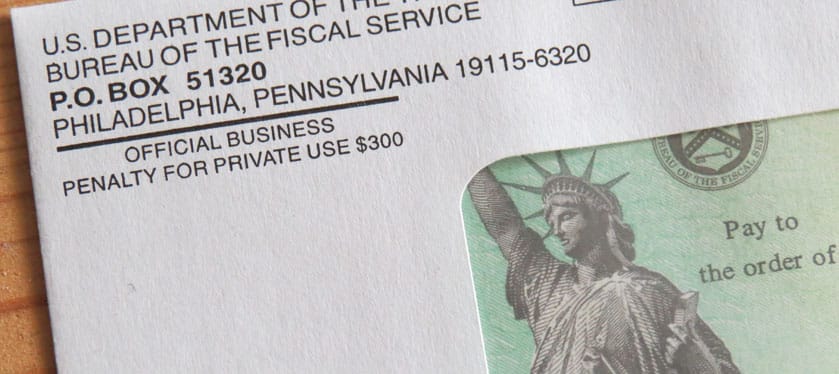Does an Estate Have to Return a Stimulus Check?

The CARES Act (Coronavirus Aid, Relief and Economic Security Act) provides automatic payments of up to $1,200 per adult and $500 per child to taxpayers who filed tax returns in 2018 and 2019, as well as many seniors and retirees who may not file tax returns but receive social security benefits. Some of these people have since died, and their Estates have received stimulus checks. Should this money be returned? The CARES Act, while intended for relief to those living through the COVID-19 pandemic, permits recipients to keep the full stimulus amount received, even if the check issued is too large. The administration, however, has indicated it wants its money back from Estates for deceased taxpayers.
The administration’s position is pre-printed on the paper stimulus check envelope: “IF RECIPIENT DECEASED Check here and drop in mailbox.” The administration elaborated its position on April 28, 2020 in an interview with The Wall Street Journal. Treasury Secretary Steven Mnuchin stated: “You’re not supposed to keep that payment…We’re checking the databases, but there could be a scenario where we missed something, and yes, the heirs should be returning that money.” Id. According to an April 28, 2020 article on Politico, “[a] Treasury spokesperson indicated the department is developing a plan to retrieve the coronavirus-related payments, but didn’t provide details.” Open questions remain as to whether, how and to what extent the IRS or Treasury will enforce its position.
The IRS website provides instructions and addresses for an Estate to use in returning a stimulus check, officially called an Economic Impact Payment. For paper checks, the taxpayers should write “Void” in the endorsement section and return it to the IRS along with an explanatory note. If the stimulus check was cashed or direct deposited, the recipient Estate should write a check or send a money order to the IRS. Retain a copy of both sides of the check and all correspondence for the Estate’s records.
According to cnbc.com, the IRS said: “If a couple is married and filed their taxes jointly, and then one spouse passes away, the living spouse can keep their payment. But they must return the portion of the money paid to the decedent.”
In planning for future expenses, Executors and heirs should consider that Congress may expressly exclude Estates from future stimulus monies. And, keep in mind, the IRS or Treasury Department could match potential future stimulus recipients against the Social Security Death Index, and refuse to issue future stimulus checks to Estates.
Timoney Knox, LLP Wills, Trusts and Estates group attorneys are available to discuss the CARES Act, and its impact on Estate Administration.





